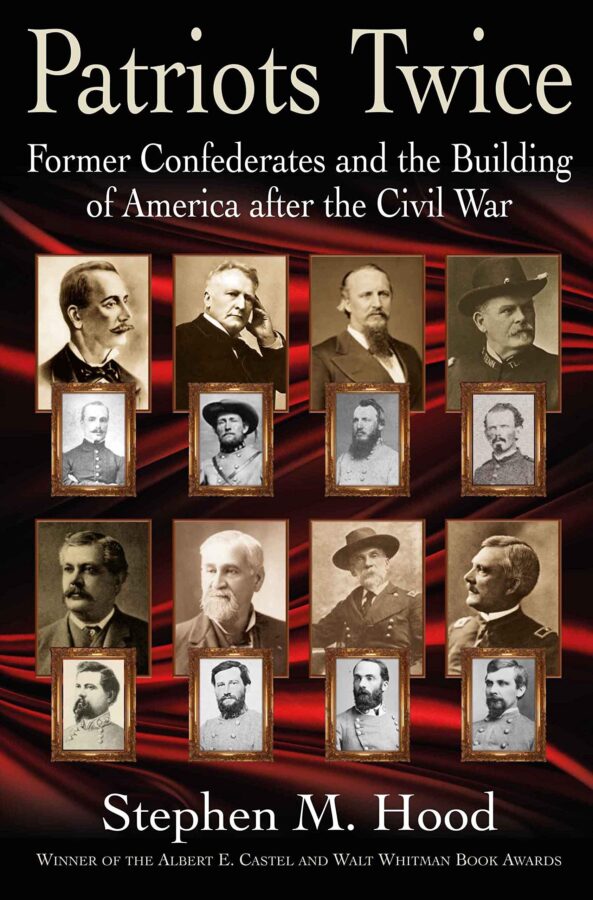A Late Encounter with the Civil War by Michael Kreyling. University of Georgia Press, 2014. Paper, ISBN: 9780820346571. $19.95.
 As the sesquicentennial of the American Civil War draws to a close, people are certain to reflect on the successes and failures of the last four years. We are fortunate that one of the first reflections comes from a leading literary scholar who brings fresh energy to topics that have become worn and familiar from frequent handling. Michael Kreyling, a professor at Vanderbilt and author of important works on Southern literature, reads the nation’s history in an unusual and revealing way.
As the sesquicentennial of the American Civil War draws to a close, people are certain to reflect on the successes and failures of the last four years. We are fortunate that one of the first reflections comes from a leading literary scholar who brings fresh energy to topics that have become worn and familiar from frequent handling. Michael Kreyling, a professor at Vanderbilt and author of important works on Southern literature, reads the nation’s history in an unusual and revealing way.
Kreyling presents himself as an amateur in the field, his engagement in the issues of the sesquicentennial triggered when he agrees to lead a discussion in a local library. Doing so, Kreyling finds himself face to face with the challenge of interpreting the meaning of the Civil War.
Taking his bearings, curious about the history of prior anniversaries, Kreyling plunges into the central texts about historical memory. He sees that we use collective memory “to determine who we are by reminding ourselves who we have been” and, during anniversaries such as the sesquicentennial, we “oblige ourselves to remember parts of the past at appointed times.” Kreyling is interested in the ways this scheduled remembering “is shaped by vocabularies of which we might be only dimly aware—codes of a sort but not always deliberate codes.” Seeing those codes embedded in “a structure of telling: novels, poems, histories, plays, films, reenactments, orations, lectures,” Kreyling sets himself the task of unlocking the meanings of the fiftieth, one-hundredth, and 150th anniversaries of the Civil War.
Kreyling’s reading of the semicentennial of the 1910s is the freshest and most surprising of the three interpretations. He broadens our understanding of the familiar racial fixation of the turn of the twentieth century into a code based on “blood.” A fascination with the purity and pollution of blood appeared in everything from Dracula to Birth of a Nation, he shows us, from genetics to genealogy to eugenics. People of European extraction worried that they were committing race suicide by reproducing more slowly than darker races and by mixing their “blood” with that of supposedly lesser peoples. The United States presented a stark version of the problem, for “killing six hundred thousand of its own potential breeders while freeing approximately four million people of color is alarming cultural arithmetic.” Thus, D. W. Griffith’s famous film was quite literally about the “birth” in its title, about reuniting the white North and the white South to breed a new white America.
Kreyling’s observations on the centennial cover more familiar ground, focusing on Robert Penn Warren’s Legacy of the Civil War [1961]. Warren imagined that he was confronting the Civil War head-on, taking both the white North and the white South to task. Though Warren could sense the centrality of slavery in the conflict, he was too skeptical of both the United States and Confederacy to know exactly what to say about that centrality. Kreyling argues that “the centennial was made from these racial omissions and exclusions even when the stated intention, by as strong-minded a thinker as Warren, was otherwise.” Like people then and since, Kreyling finds the centennial of the Civil War hollow and disappointing, its pretensions toward reconciliation mocked by the unfolding drama of the black freedom struggle.
When it comes to our own sesquicentennial, Kreyling is puzzled. “If it is a truism that the present is a moment in transition,” he asks, “what does our particular present mean for collective memory, particularly for memory of the Civil War? Where are we on the arc from 1911 that runs through 1961 to the present?” The code of our moment should tell us something meaningful “for anniversaries we make social memory a ritual, a tool, even a sacrament. We formalize it, set it aside from daily life.”
Our current scheduled attention to the Civil War, Kreyling thinks, demonstrates mainly that we are lost. The powerful regional identities that shaped previous understanding for so long, that trumped racial identities for so long, are fading before our eyes. “The South is being replaced by southerness,” Kreyling believes, “a cultural identity based less on history and more on lifestyle—the kind of affect marketed successfully by publications like Garden & Gun.” Accordingly, Kreyling finds the codes to our own time in the minor key of Captain Confederacy comic books and counterfactual novels co-written by Newt Gingrich. Our current categories for understanding the Civil War are empty, he judges, and so he examines empty representations of the Civil War and finds them, not surprisingly, empty.
Cultural codes live in places other than in textual and visual representations, however, and people of good will are trying to rewrite those codes in places across the country during our own anniversary of the Civil War. Conversations and commemorations confront the centrality and complexity of slavery as never before. That hard work of creating social memory from the ground up is taking place at national battlefields, in museums, in churches, and in the very library where Michael Kreyling has done some of that hard work himself. The codes of the sesquicentennial are yet to be broken. When they are, they may yet hold surprises.
Edward L. Ayers is President of the University of Richmond. He is the author of In The Presence of Mine Enemies (2003).
